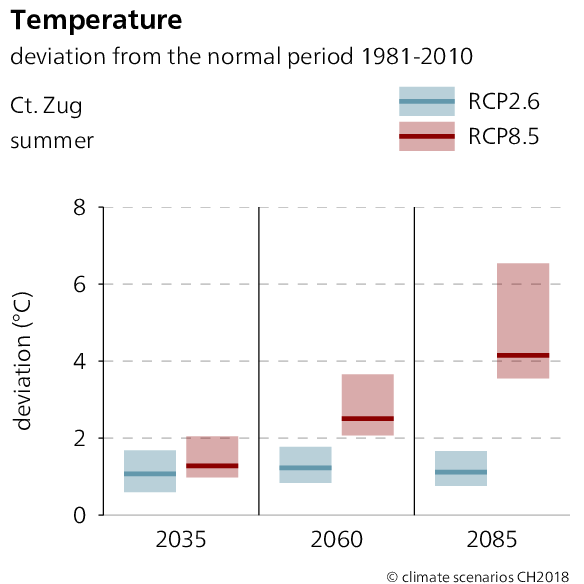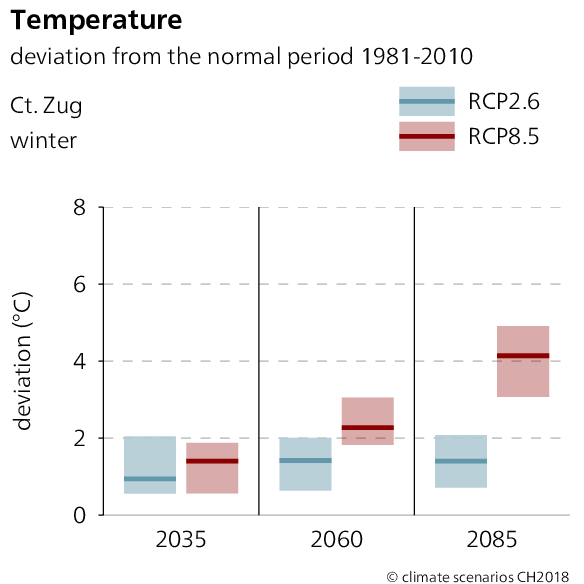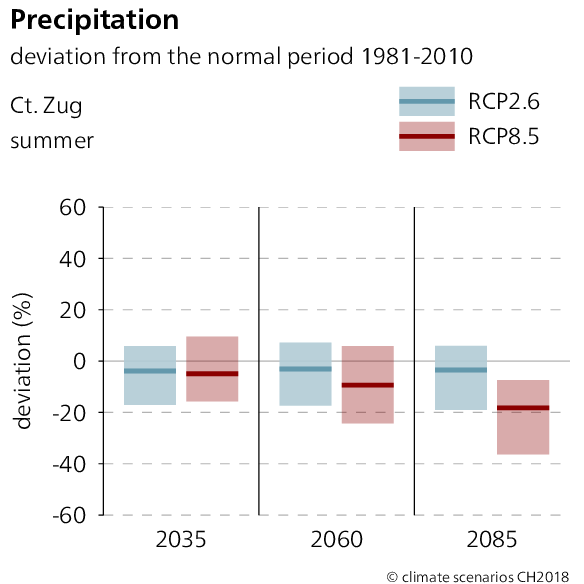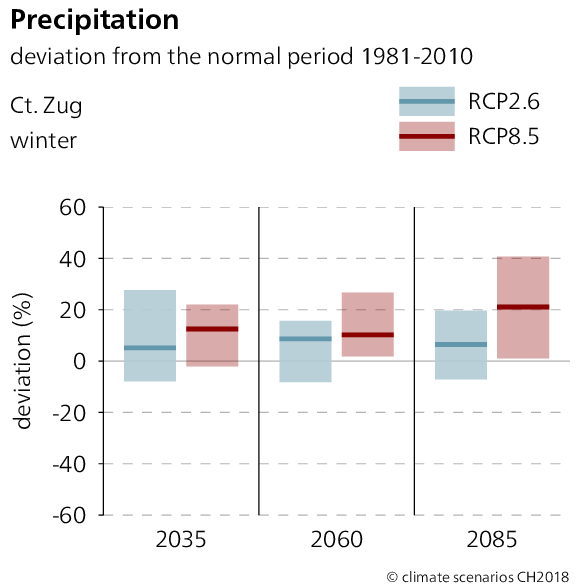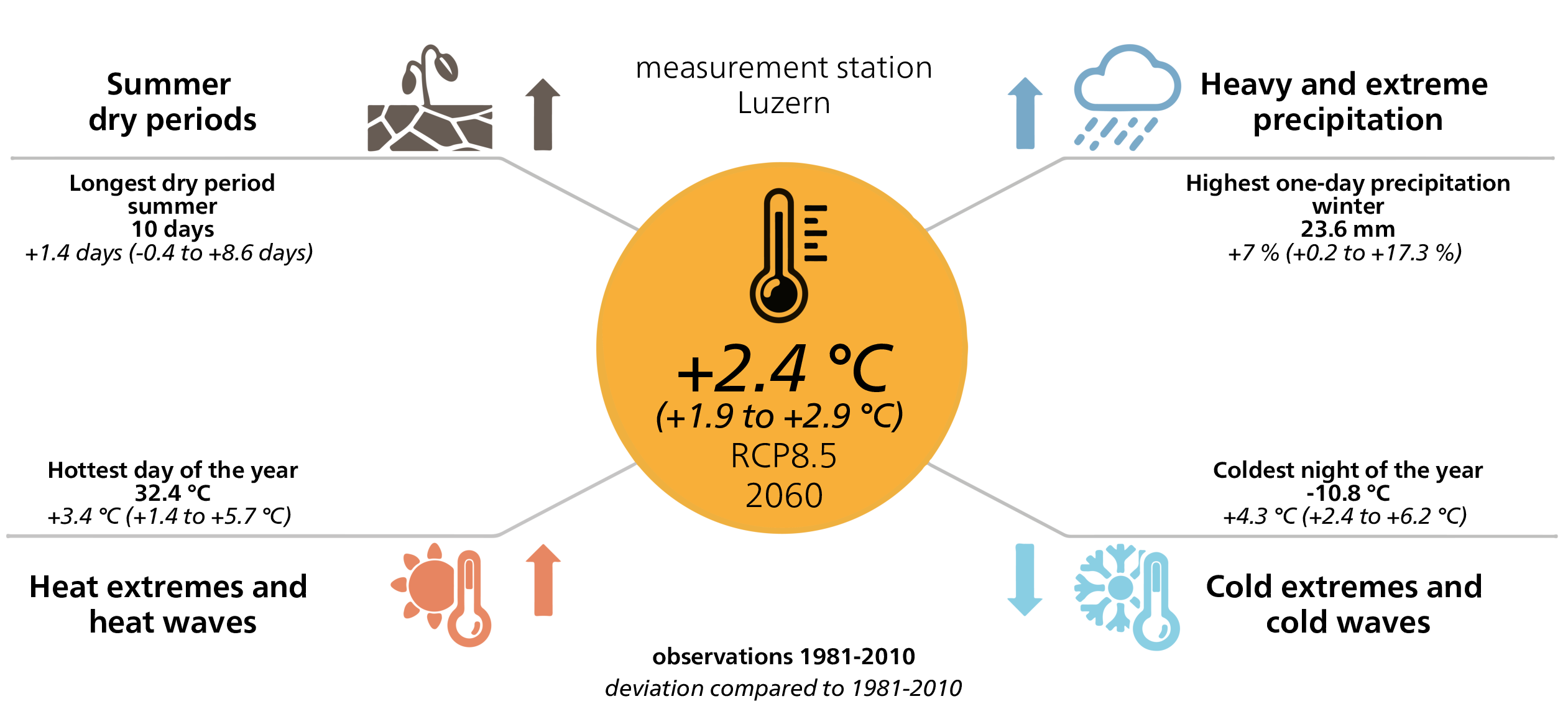Since the year 1864, the temperature in the Canton of Zug has increased by 2 °C, based on the cantonal fact sheet from 2021. If global greenhouse gas emissions continue to rise in the future, the warming will continue and will amount to further 2.4 °C by 2060 with respect to the mean of the period 1981-2010. Only an effective lowering of emissions can limit the future temperature change. However, adaptation to the impacts of climate change in the Canton of Zug would be required even in this case.
The cantonal climate scenarios are based on the Swiss climate scenarios CH2018. In the meantime, new Swiss climate scenarios have been published as part of the Climate CH2025 project. They expand on the previous results with longer measurement series and information from new, high-resolution climate models. The qualitative statements remain unchanged from the CH2018 climate scenarios, but the quantitative assessments have changed. An update of the cantonal climate scenarios based on the results of Climate CH2025 will follow.

Climate change in the Canton of Zug
The CH2018 Climate Scenarios provide a Swiss-wide picture on how climate variables such as temperature and precipitation will change throughout the 21st century. They are now complemented by the corresponding information for each individual Swiss canton. Human-made climate change will lead to a further increase of both winter and summer temperature in the Canton of Zug. Mean precipitation amounts will tend to decrease in summer and to increase in winter. The magnitude of these changes will depend on the future greenhouse gas emissions. Two different emission scenarios are considered here: Stringent future emission cuts (RCP2.6) and a continued increase of emissions (RCP8.5).
Besides understanding future changes in mean temperature and mean precipitation amounts, developing robust and sustainable mitigation and adaptation strategies also requires information on changes in the frequency and intensity of extremes and changes of sector-specific climate indicators. As an example, increases in the number of hot days, drier summers, more intense precipitation events and more frequent snow-scarce winters are projected for the future. The figure below presents an overview on future changes in extreme events projected for the Canton of Zug by the year 2060 in case of continuously rising greenhouse emissions (scenario RCP8.5).
Download and data
More details on the climate in the Canton of Zug, on specific climate indicators and on projected changes of the mean climate and of extreme events are available in the cantonal fact sheet and in the CH2018 web atlas.
Adaption to climate change
This information is currently only available in German, French or Italian.
Projects
Projects are currently only available in German, French or Italian.
Last modification 10.10.2025


